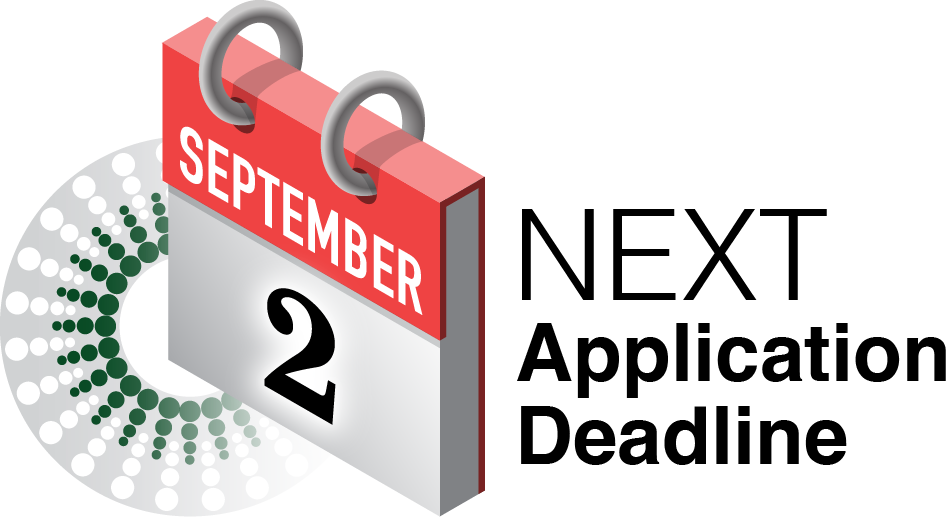Assay Cascade Application Process
The Nanotechnology Characterization Laboratory (NCL) solicits nanotechnology strategies from academia, industry, and government. Desired nanotechnology proposals include, but are not limited to, strategies that incorporate image contrast agents, cancer therapeutics, and targeting receptors or ligands. Given the large number of candidate nanomaterials that could be submitted to the NCL for characterization, a set of evaluation criteria will be applied to proposed nanotechnology strategies to aid in their selection and prioritization. A panel of scientists with expertise in chemistry, immunology, toxicology, pharmacology, and cancer biology will review and evaluate the proposals.
- Non-domestic (non-U.S.) Entities (Foreign Organizations) are not eligible to apply.
- Non-domestic (non-U.S.) components of U.S. Organizations are not eligible to apply.
Application Process for NCL's Assay Cascade Characterization Program
The NCL solicits applications twice per year, with deadlines on the first business days of March and September each year. The application process is conducted in two parts:
Part 1 is a four-page white paper application that describes the concept. The white paper is intended to provide reviewers with an introduction to your nanoformulation, the data previously generated, and areas where NCL could potentially provide further data. Applications are reviewed within 45 days of the application deadline.
Part 2 is a full proposal. The most promising white papers (i.e., nanotechnology strategies) will be asked to submit full proposals for part 2 of the application process. This proposal can be in the form of an oral presentation to the review committee or a written proposal. Invited applicants will be provided comments from the review committee on the evaluation of their white paper that they should address in their part 2. The part 2 proposals are due three months after receipt of the invitation letter and decisions are typically returned in about two weeks.
Characteristics of Proposed Therapeutic, Vaccine, and Diagnostic Concepts to be Addressed in Your White Paper Submission
To apply for NCL Assay Cascade characterization of your lead nanotechnology concept, please use this White Paper Application.
- Demonstrated Efficacy
Discuss findings from safety and efficacy studies. Studies should include all appropriate controls (e.g., standard of care comparison, nontargeted controls, etc.), use a cancer model appropriate to your intended indication, and use the intended clinical route of administration. Given the competitive nature of the application process, preference is given to applications that have in vivo efficacy data as opposed to only in vitro data.
- Anticipated Impact of Strategy
Describe the projected clinical use of the material and the basic biological mechanisms of action. What is the strategy's advantage when compared with existing therapeutics and diagnostics? If the strategy has benefits due to targeting or specificity, discuss the specific underlying mechanisms and include data to support these claims. Describe any significant findings related to safety or pharmacology endpoints, comparing these results with current therapeutics or devices.
- Previous Characterization of Material
Supply detailed information on assays previously used to characterize the material and discuss lot-to-lot variability. If the variability is large, physical and biological assays will not provide meaningful data, and the concept is not likely to be accepted into the program. In addition discuss the shelf-life stability of the formulation. Since the NCL Assay Cascade involves extended characterization efforts, a minimal shelf-life of 3 months will be required for acceptance into the program.
- Manufacturing Process; Compatibility with Scale-Up
Briefly describe the manufacturing process and steps used during purification. Discuss impurities that may be present in the final product. Provide information on the current batch size of nanomaterial (e.g., milligram, gram, or kilogram scale). Discuss potential obstacles associated with producing enough material for completing the NCL Assay Cascade evaluation studies.
- Inherent Toxicity of Nanotechnology Concept
Include information on relevant safety issues related to the production, purification, handling and use of the nanomaterial. For example, if the nanomaterial contains a known toxic compound, discuss how the strategy overcomes or mitigates potential adverse health effects.
- Plan or Strategy to Transition the Concept to Clinical Use
Information related to teaming with industry, non-profit, academic, or other government partners in the translation effort is of interest to the NCL. If applicable, describe steps previously taken toward translation of the nanomaterial to clinical use. Discuss possible sponsors for future studies or trials and arrangements with commercial production firms. Discuss intellectual property issues related to the material, especially if the material uses licenses or represents an improvement or modification of an existing material or production process. If applicable, a brief summary of similar or closely related antecedents or approaches to the submitted nanomaterial should be described.
Characteristics of Proposed SAR Studies, Technology Advancements, and Method Development Efforts to be Addressed in White Paper Submission
To apply for NCL assistance with your SAR study, technology advancement, or method development projects, please use this White Paper Application.
- Unaddressed Need
Discuss specific gaps in the current state of cancer nanotechnology which the SAR study will fill or the limitations/needs that the technology or method will address.
- Advantages Over Existing Approaches
Discuss advantages of your approach/technology over those currently used in the field of cancer nanotechnology.
- Anticipated Impact
Discuss the impact of the proposed SAR, technology or method on cancer nanotechnology.
- Requested Assistance
Discuss the needs for your SAR study or technology/method development which NCL might assist with. Please reference the instrumentation and protocol capabilities of the NCL’s Assay Cascade.
